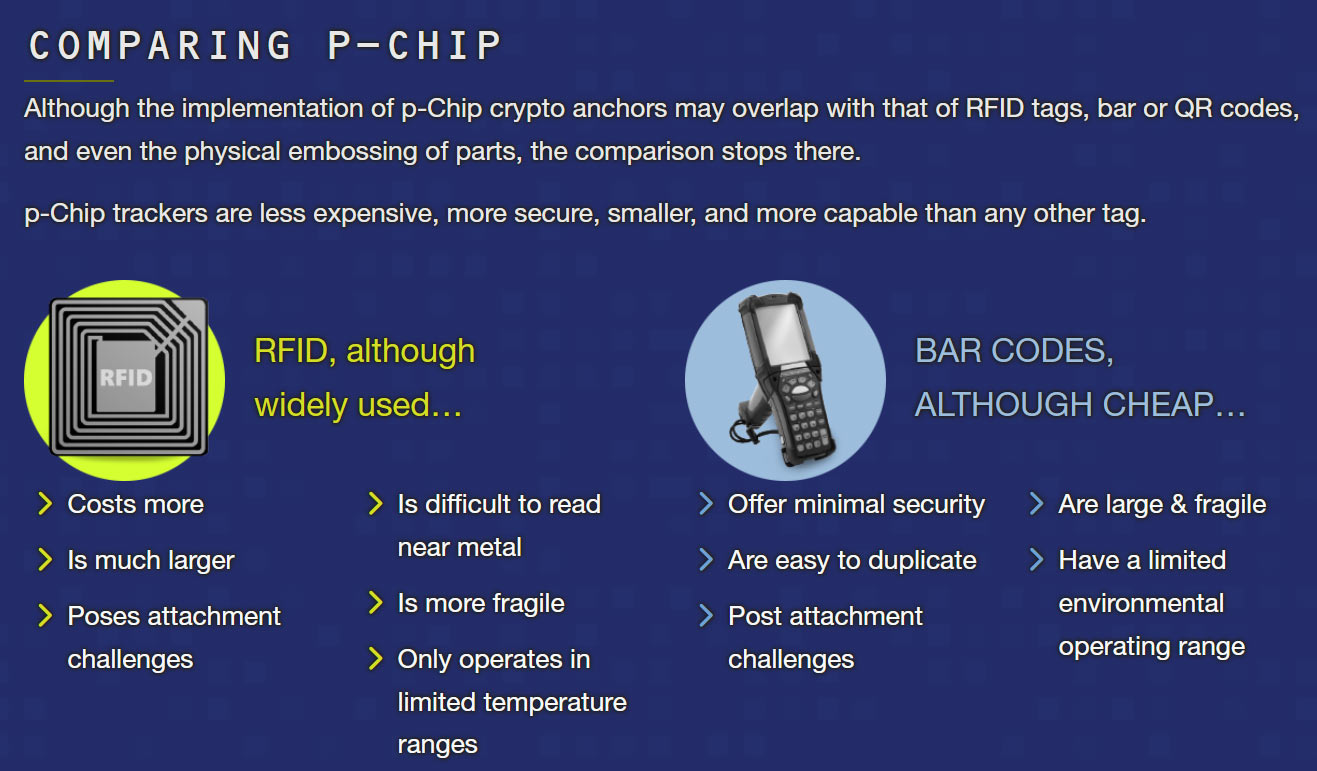Parmesan Makers Add Microchips To Cheese Wheels To Foil Counterfeiters
p-Chip micro-transponders are tiny, rigid crypto anchors.
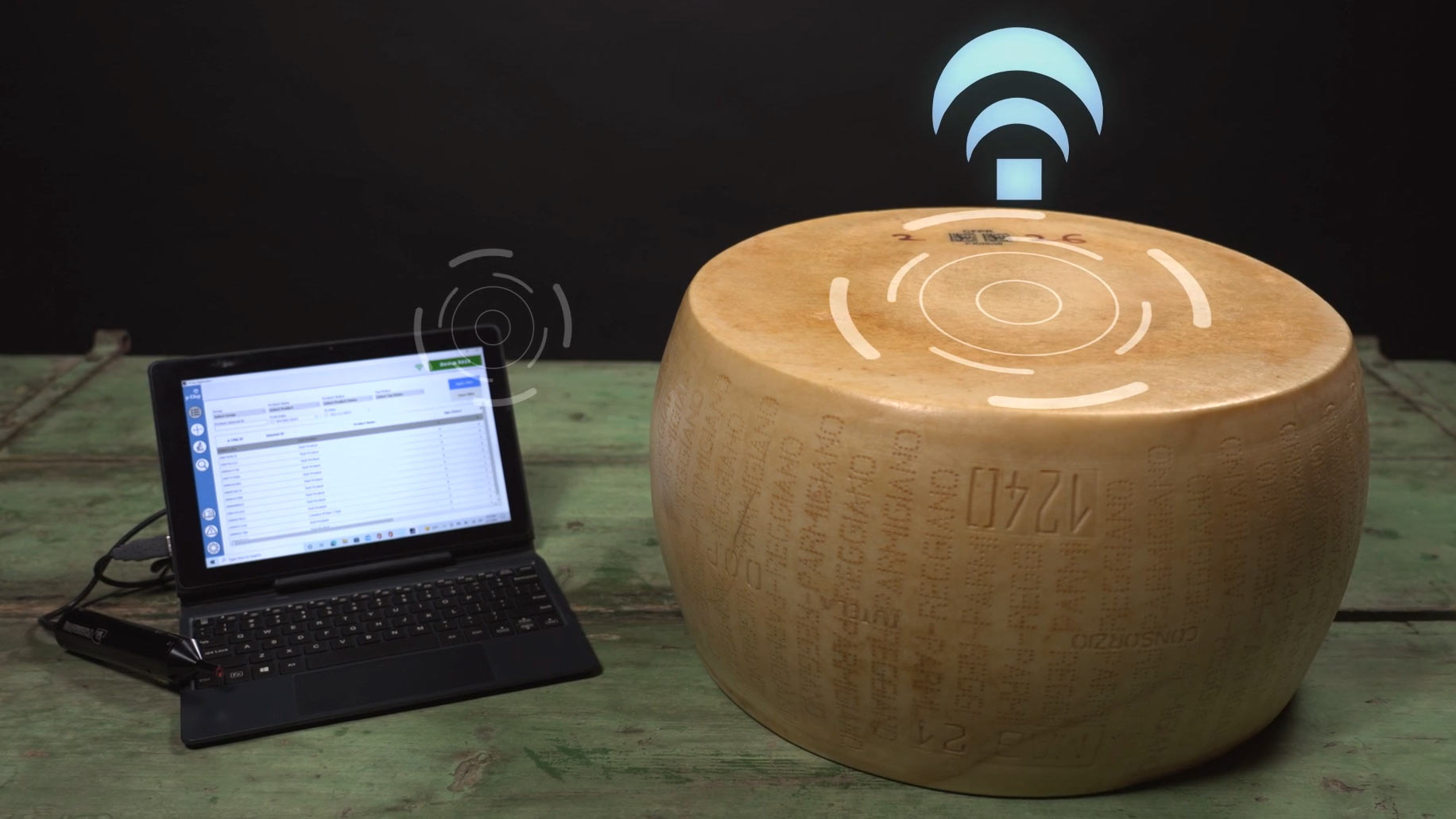
Chicago-based p-Chip boasts its nanotechnology can be added to "virtually any physical good." Its micro-transponders can add tracking and authentication to electronics and computing goods, product packaging, automotive components, and more -- including cheese. Indeed, p-Chip has recently developed a method to add integrated tracking to foodstuffs. Its first success story in the world of edibles is within the purportedly widely counterfeited Parmigiano-Reggiano cheese market.
People say microchips are everywhere. This statement certainly applies in 2023, with people packing ubiquitous smart devices, many household goods becoming intelligent and connected, and the relentless march of the (A)IoT. However, news that microchips are deployed inside foodstuffs may even raise the most jaded eyebrow.
Fighting counterfeiting is essential to protect many businesses. However, it has not been easy to track and authenticate edible products until now. In the EU alone, more than 3,500 food products have received protected status, vital to keep these signature industries alive. These characterful niche food businesses generate more than $87 billion annually.
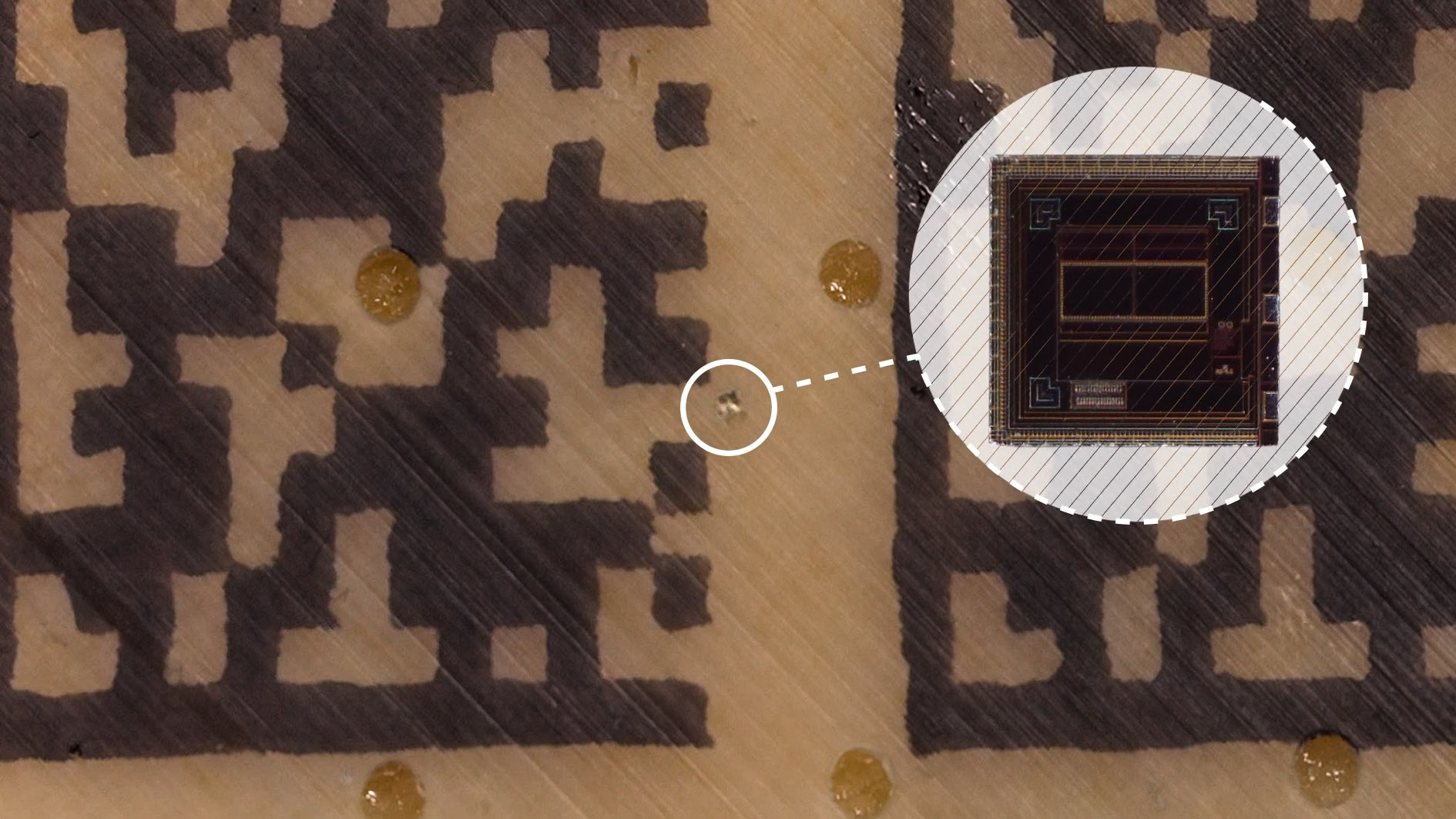
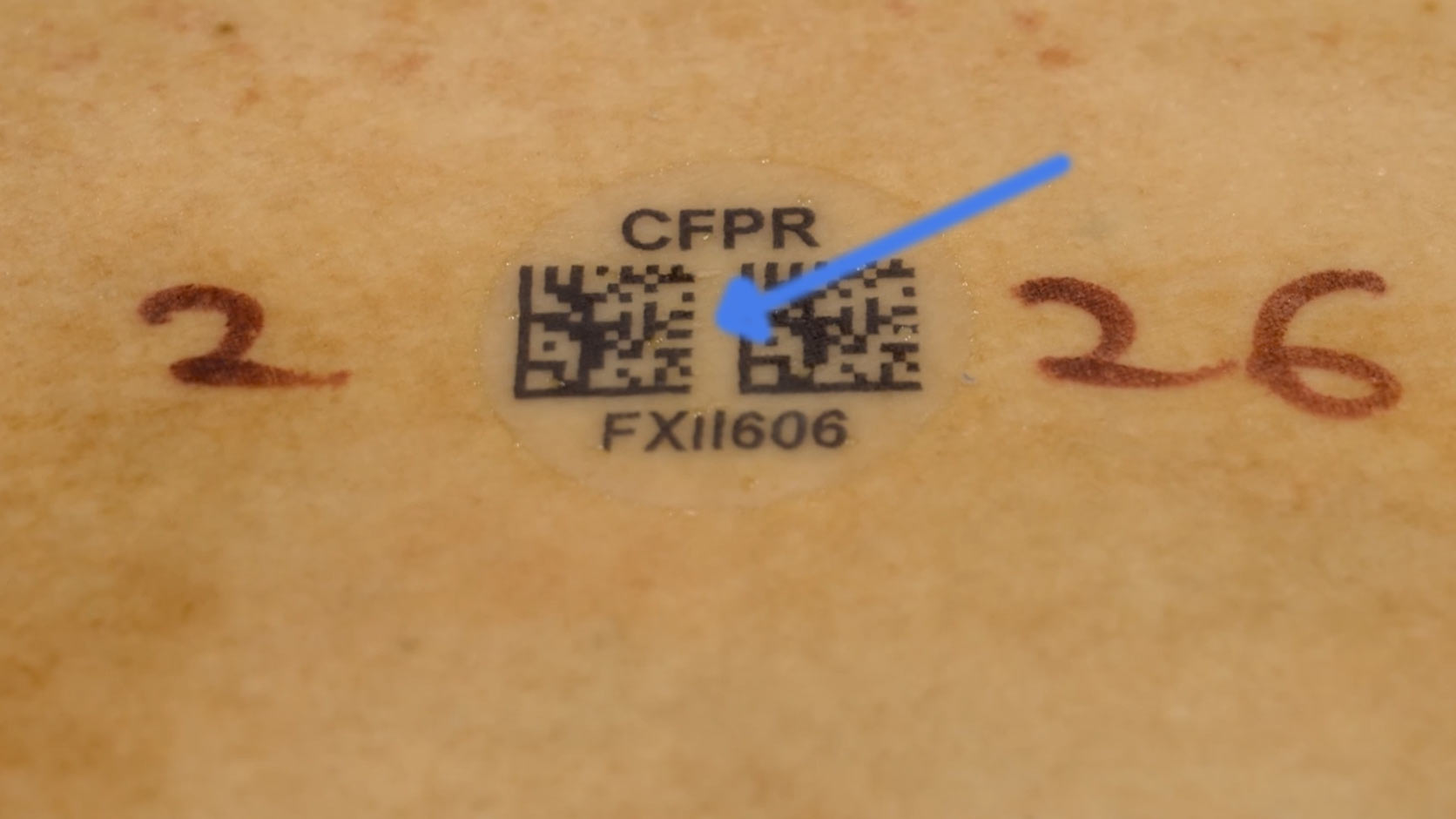
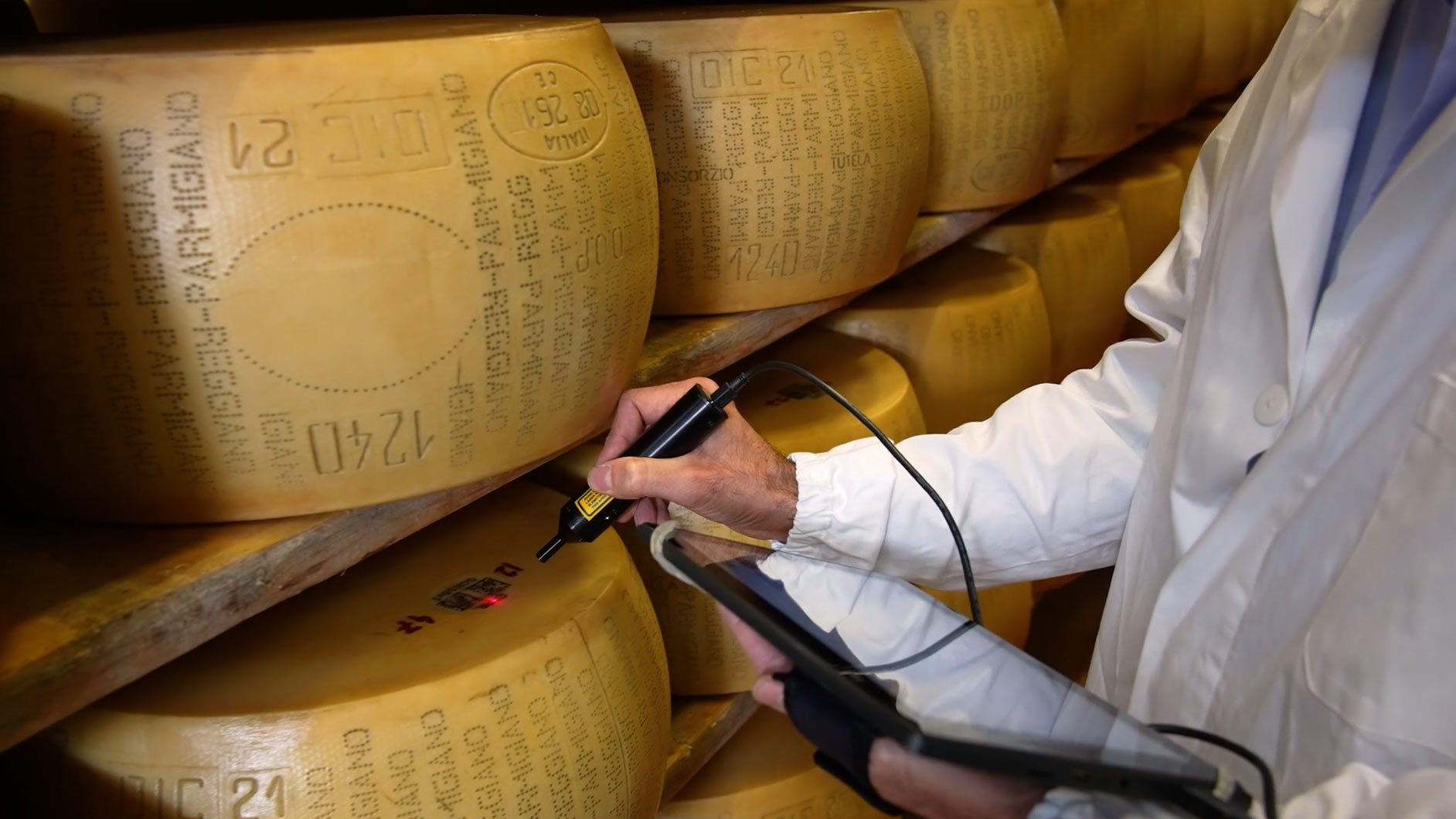
The Parmigiano-Reggiano cheese is made using traditional ingredients and methods in a specific region of Italy. Its worldwide sales add up to a cool $2.44 billion. Sadly, for authentic businesses, it is estimated that counterfeit copies rake in almost as much, about $2 billion.
The p-Chip micro-transponder is a grain of salt-sized silicon chip containing a unique identification code that is attached to the silicon substrate. When a modulated laser pulse scans the chip, power goes through its circuits and transmits a unique code via ultra-low radio frequency waves.
If you are wondering about using a p-Chip instead of an RFID tag, the former boasts several advantages. According to the maker, p-Chip devices are smaller, cheaper (a few cents each), tougher, and more secure than nearest competitor RFID.
Some impressive claims for p-Chips are that:
Get Tom's Hardware's best news and in-depth reviews, straight to your inbox.
- They are "virtually impossible to duplicate or counterfeit."
- They are "tiny, durable, and affordable digital crypto anchors."
- They can withstand extreme temperatures (-200°C to 500°C).
- They are microwave hardy.
- They are claimed to be safe for direct food contact.
- They can withstand solvents and reagents.
- They can be scanned through paper, glass, animal tissue, frost, labels, etc.
To embed the p-Chip in a Parmigiano-Reggiano cheese wheel, the chip is inserted into a casein label on the cheese wheel, which becomes part of the cheese rind during its preparation process. Cheese buyers aren't going to eat this embedded label.
Italy's parmesan makers are testing this technology, with over 100,000 cheeses maturing for the past year with p-Chips micro-transponders in the rind. This testing phase has been deemed necessary as the years-long maturation process for the cheese, including hot saltwater immersion, can degrade alternatives like QR codes and RFID tags.
Tom's Hardware readers will be well aware of the fight against counterfeiters in the PC hardware, devices, and components markets. Perhaps some of our favorite tech companies could use p-Chips in their longstanding fight against fakes.

Mark Tyson is a news editor at Tom's Hardware. He enjoys covering the full breadth of PC tech; from business and semiconductor design to products approaching the edge of reason.
-
bit_user ReplyThey can withstand extreme temperatures (-200°C to 500°C).
Wow. I wonder if that's sustained, or just brief spikes, like during pasteurization. If they can sustain ~100 C, then perhaps you could even put them in the PCB of a CPU.
Tom's Hardware readers will be well aware of the fight against counterfeiters in the PC hardware, devices, and components markets.
Tracking of merchandise from factory to the point sale could do a lot to combat "shrink" or theft. When a chipped merchandise is found on someplace like ebay, you could confirm that it was stolen and then pursue the ebay seller to either find the thieves or at least shut down their ability to sell their il-gotten loot. It could also reduce return fraud, since you'd be able to tell whether an item was actually purchased, in the first place.
Underlying all of this, you'd need a fairly substantial database infrastructure and good, consistent connectivity. Not only that, but it adds cost to the checkout process. So, it's not a panacea, but I wouldn't be surprised to see it trickling down from high-value items to the more mass-market ones. -
Kamen Rider Blade I'm surprised counterfeit food is such big business?Reply
That's eye opening.
If implemented correctly, it could be a good way to check supply chain quality and where everything comes from.bit_user said:Wow. I wonder if that's sustained, or just brief spikes, like during pasteurization. If they can sustain ~100 C, then perhaps you could even put them in the PCB of a CPU.
Tracking of merchandise from factory to the point sale could do a lot to combat "shrink" or theft. When a chipped merchandise is found on someplace like ebay, you could confirm that it was stolen and then pursue the ebay seller to either find the thieves or at least shut down their ability to sell their il-gotten loot. It could also reduce return fraud, since you'd be able to tell whether an item was actually purchased, in the first place.
Underlying all of this, you'd need a fairly substantial database infrastructure and good, consistent connectivity. Not only that, but it adds cost to the checkout process. So, it's not a panacea, but I wouldn't be surprised to see it trickling down from high-value items to the more mass-market ones. -
Sluggotg Whew! I was losing sleep over the "Global Counterfeit Cheese Crisis"!Reply
Seriously these little chips are great but they can be abused by Governments. -
USAFRet Reply
Little different than microchipping cattle.Sluggotg said:Whew! I was losing sleep over the "Global Counterfeit Cheese Crisis"!
Seriously these little chips are great but they can be abused by Governments.
If you need to protect your core product, do what it takes. -
InvalidError Reply
Semiconductors are exposed to temperatures in excess of 400C during manufacturing and 250C during PCB assembly. There isn't much reason to doubt chips' ability to survive spending a few minutes in the 100-200C range, especially in a powered-down state.bit_user said:Wow. I wonder if that's sustained, or just brief spikes, like during pasteurization. If they can sustain ~100 C, then perhaps you could even put them in the PCB of a CPU.
Most power semiconductors have a normal max OPERATING temperature in the 150-170C range. Stories of VRMs on some motherboards getting hot enough to de-solder themselves from the board during extreme overclocking tell us those power stages are getting to 235+C under load. -
USAFRet Reply
Even my little consumer grade 3D printer has a working temp at the hot end of up to 300C.InvalidError said:Semiconductors are exposed to temperatures in excess of 400C during manufacturing and 250C during PCB assembly. There isn't much reason to doubt chips' ability to survive spending a few minutes in the 100-200C range, especially in a powered-down state.
Most power semiconductors have a normal max OPERATING temperature in the 150-170C range. Stories of VRMs on some motherboards getting hot enough to de-solder themselves from the board during extreme overclocking tell us those power stages are getting to 235+C under load. -
PEnns Reply
These are not trackers. They're scanned to verify authenticity.Sluggotg said:Whew! I was losing sleep over the "Global Counterfeit Cheese Crisis"!
Seriously these little chips are great but they can be abused by Governments.
It's like saying the barcode on every item in supermarkets can be abused by the government. -
bit_user Reply
It's very different than a bar code, because those encode a unique product code, whereas these likely each have a unique serial number.PEnns said:These are not trackers. They're scanned to verify authenticity.
It's like saying the barcode on every item in supermarkets can be abused by the government.
While they're not useful for actively locating the item, their intended use leaves a potential "paper trail", which I suppose could be abused. In terms of surveillance technologies that worry me, these don't rank terribly high, but I'm sure someone could come up with a troubling scenario of one sort or another. -
InvalidError Since real Parm-Reggiano must be made from specific local raw milk, I'll be happy enough with immitation Parmesan made exactly the same way apart from pasteurized milk and manufacturing from locations more local to me. More than good enough for me at half the price, glad "Parmesan" is a generic brand just about anywhere other than the EU, wish there were more cheezes with a generic international name following a given recipe apart from locally sourced ingredients and manufacturing location.Reply
